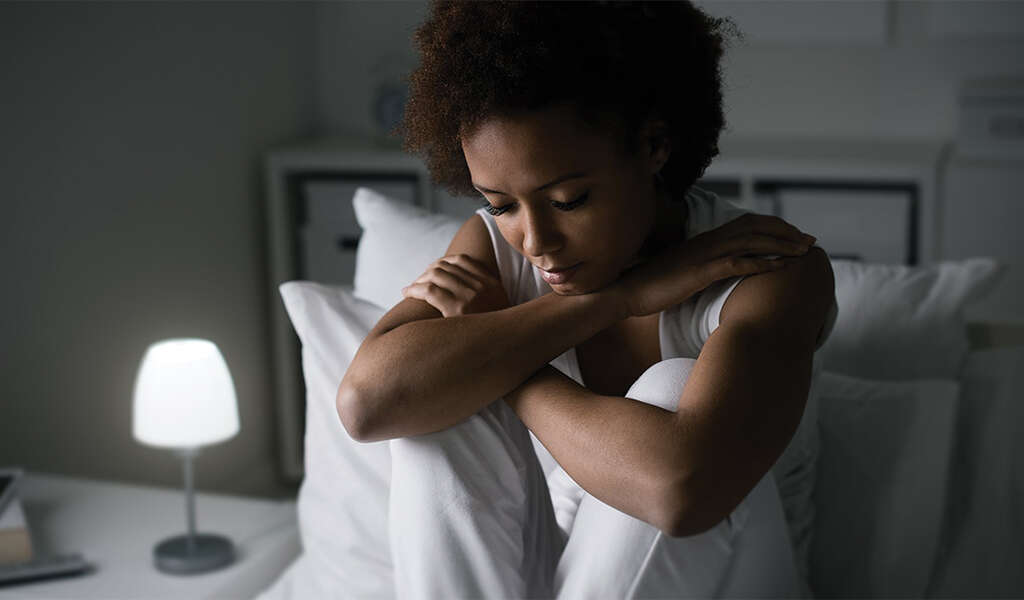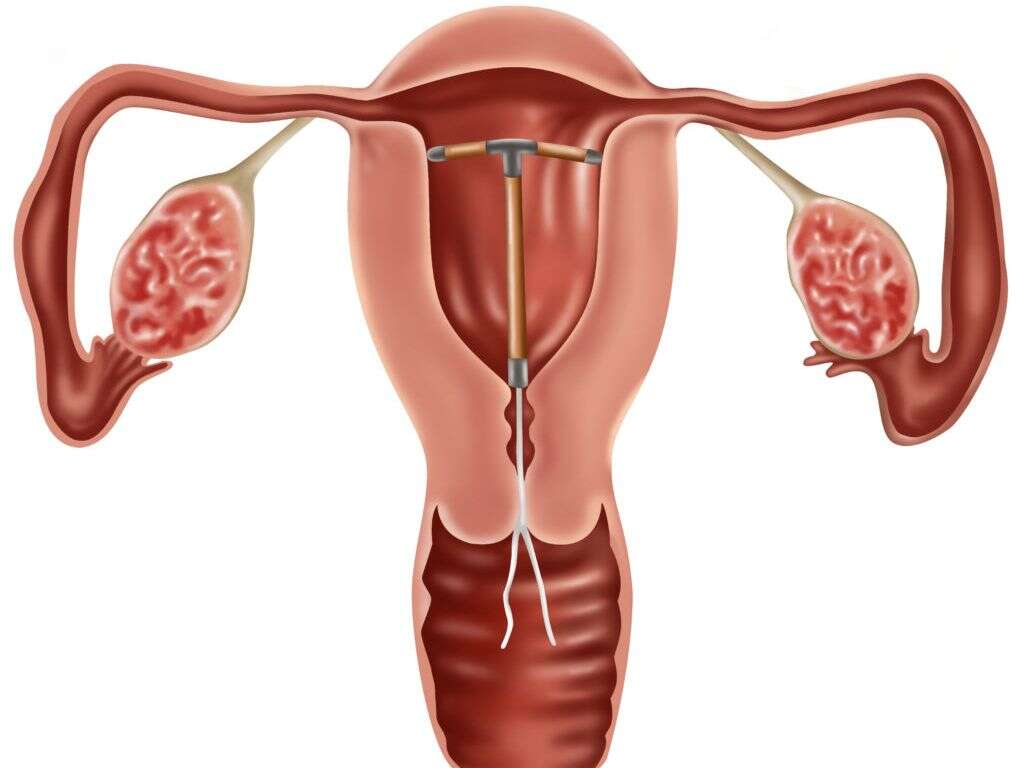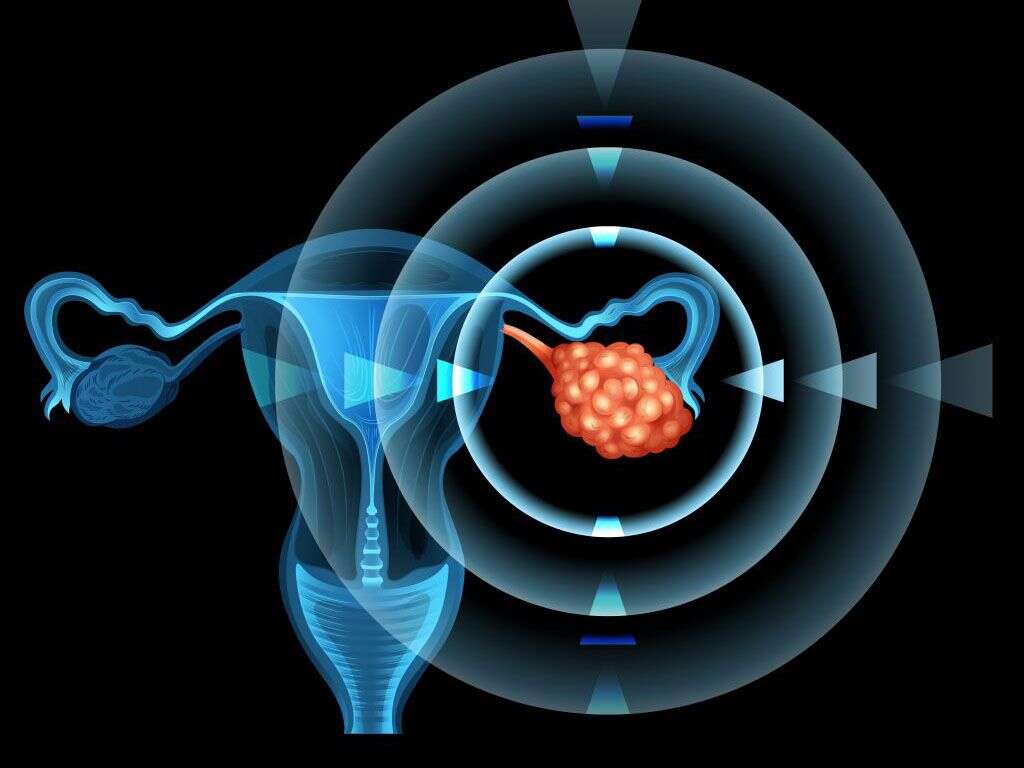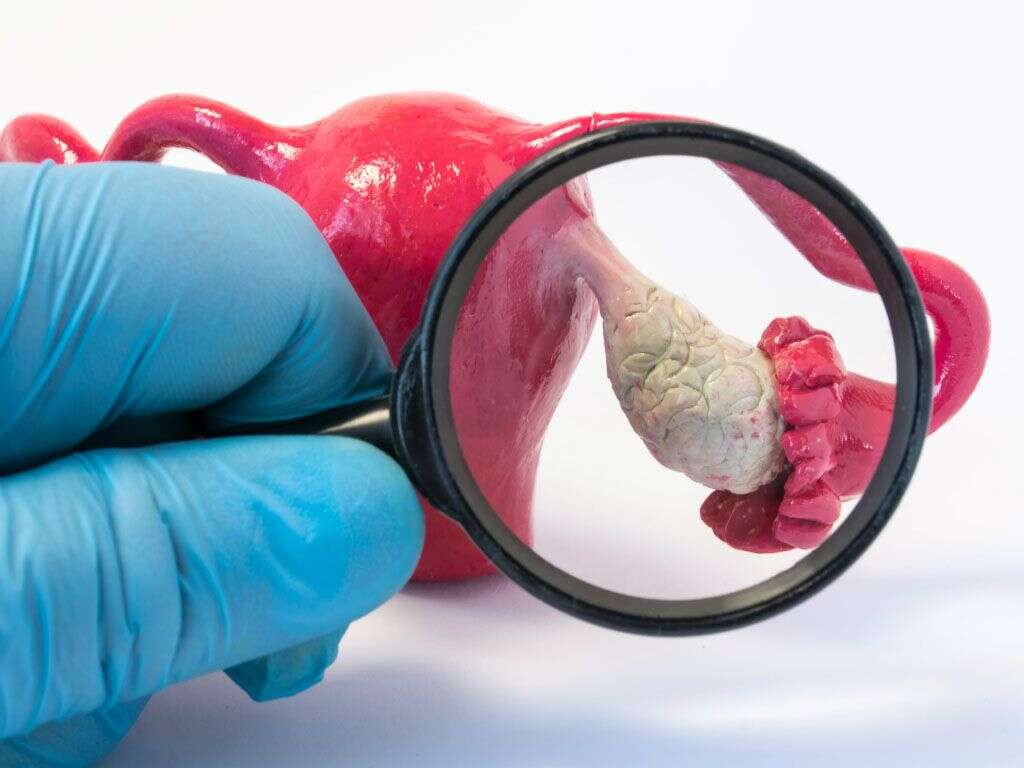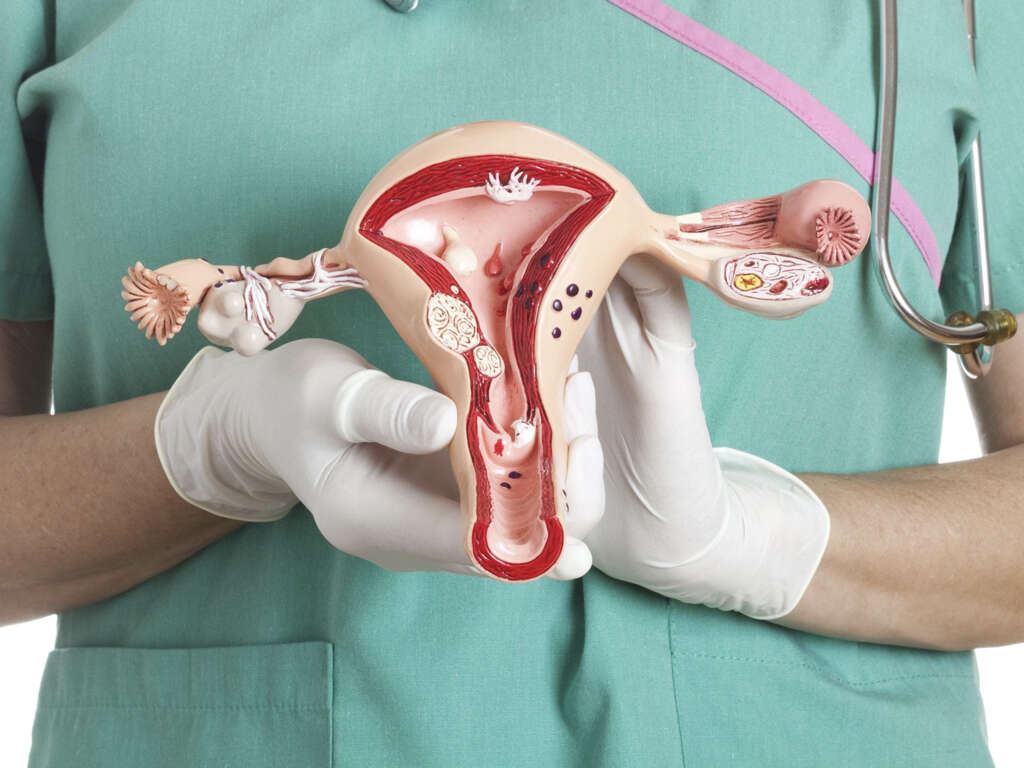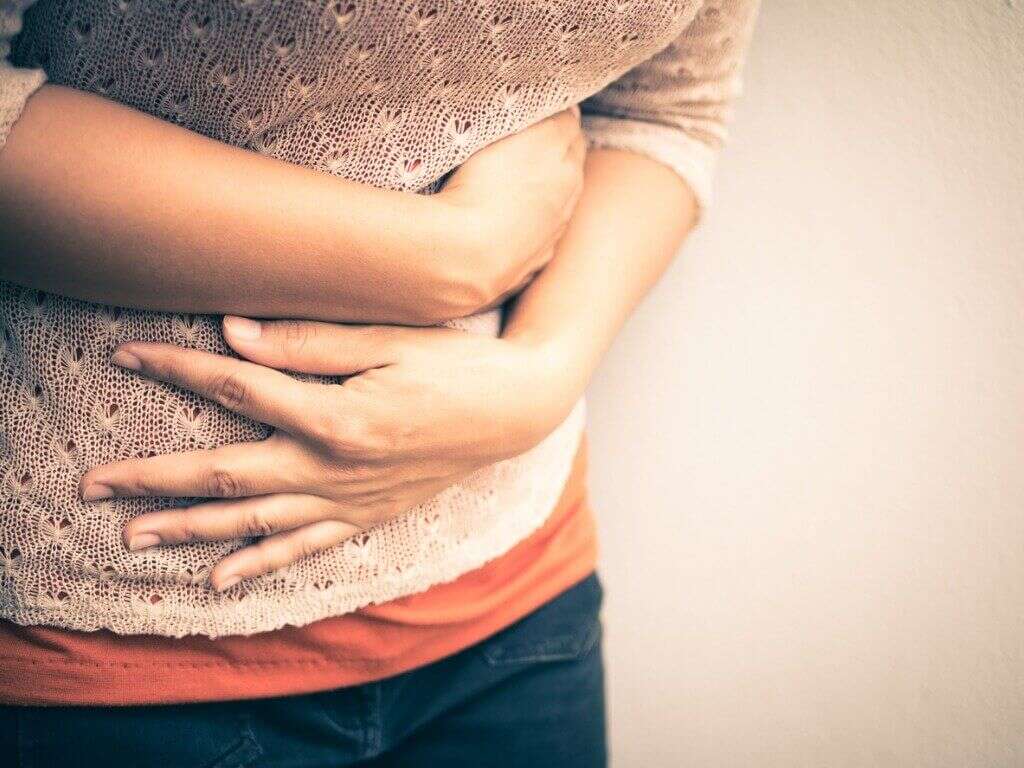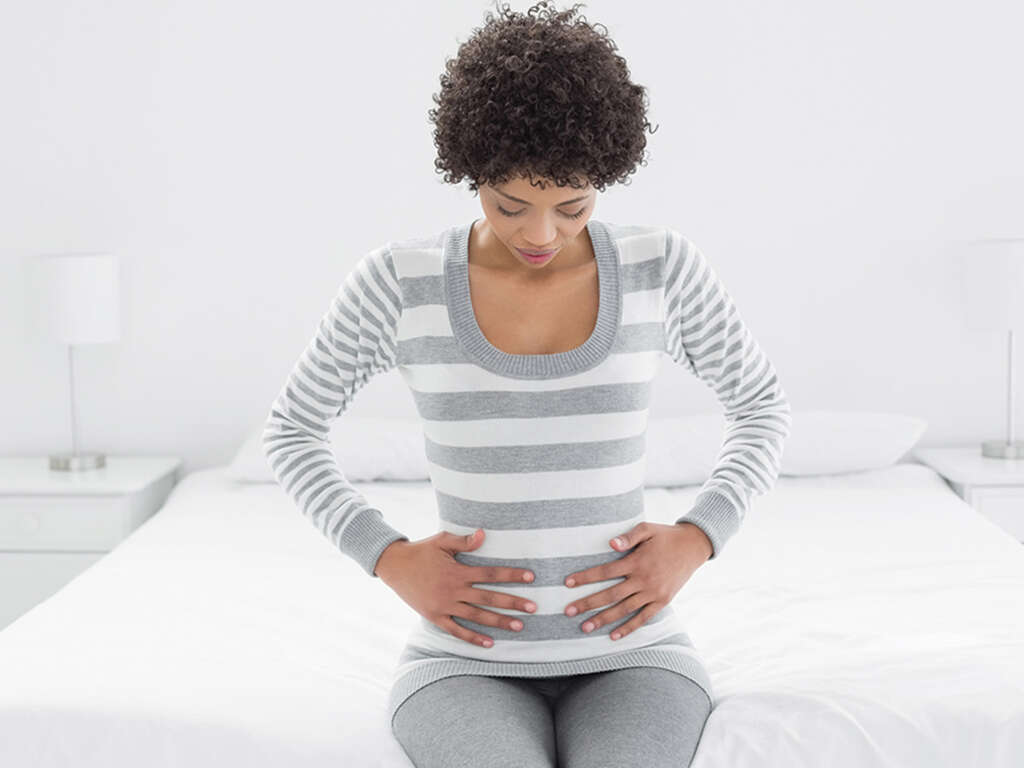10 PCOS Symptoms
PCOS or polycystic ovary syndrome is a condition that affects about 10 percent of women of childbearing age. The condition becomes apparent during the late teen years or in the early twenties. PCOS is a common cause of infertility in women. Fortunately, this type of infertility is treatable.
While the specific cause of PCOS is unknown, the condition is believed to occur as a result of hormonal imbalance and metabolic problems. Women with PCOS have higher levels of androgenic hormones than is normal for women. They are also likely to have high insulin levels in their blood. This interferes with their metabolism of food for production of energy. Many women with PCOS develop insulin resistance and are likely to develop type 2 diabetes. They also have a high risk of developing other conditions like high blood pressure, anxiety, depression and endometrial cancer 1https://www.nhs.uk/conditions/polycystic-ovary-syndrome-pcos/symptoms/. What follows are 10 PCOS symptoms.
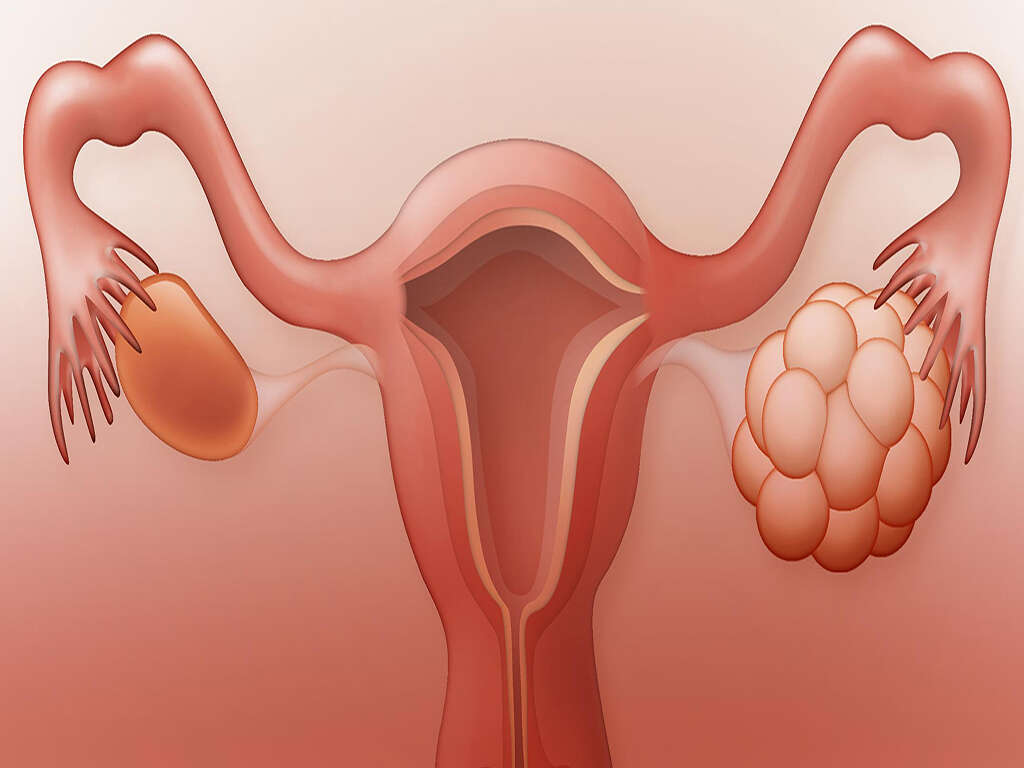
Symptom #1: Irregular Periods
A woman with PCOS usually gets irregular periods or doesn’t get them at all. When they get periods, women with PCOS may get 8 or less in a year, while others may get them every three weeks or so. Irregular periods are among the most common PCOS symptoms.
This is the result of hormonal imbalance such that the woman has higher than normal androgenic hormones like testosterone. This leads to growth of cysts within the ovaries, an occurrence that interferes with the release of ova and menstruation. While it is common for girls to experience irregular periods when they start menstruating, if this continues into late teenage and early adulthood, it may be a sign of PCOS.

Symptom #2: Absence of Periods
Patients suffering from PCOS may develop primary amenorrhea which is the absence of the first menses after the age of 16. For patients that already have had a period, they can suffer from secondary amenorrhea which means that they haven’t had menses for 6 months straight.
High levels of testosterone in a woman can interfere with the release of ova by the ovaries. The high levels of androgenic hormones may also totally inhibit menstruation. A pubescent girl who has not commenced menstruation may have PCOS. This is even more probable if she has another PCOS symptom.

Symptom #3: Skin Discoloration
Discoloration of skin during a woman’s childbearing years may be a symptom of PCOS. The expansive, thick, brown or black discoloration is known as acanthosis nigricans. It usually appears on the face, neck, armpits, navel, and groin, between the thighs and sometimes on the hands, elbows and knees.
In addition to discoloration, patients may also have skin tags and tiny wart-like growths.
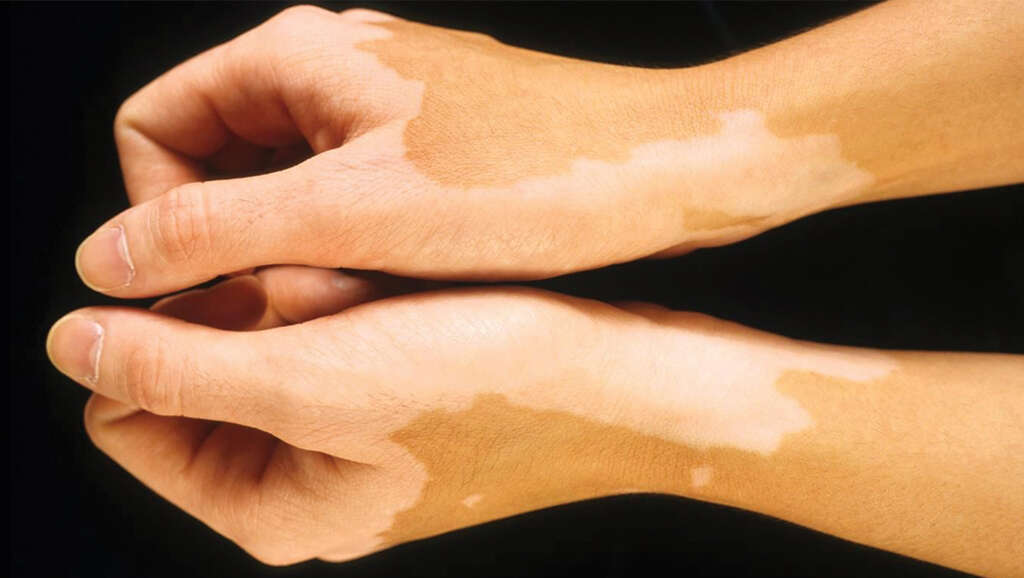
Symptom #4: Excessive Growth of Body Hair
Excessive growth of facial and body hair, also known as hirsutism, is yet another common PCOS symptom. The condition is a result of excess testosterone hormone in a woman. The excess hair normally grows on the upper lip, chin, jaws, chest, stomach, legs and thighs. This gives PCOS patients some physically masculine characteristics.
According to a study published in the American Family Physician in 2012; 75 percent of cases of hirsutism are caused by PCOS 2https://www.aafp.org/afp/2012/0215/p373.html.

Symptom #5: High Blood Sugar
As mentioned earlier in this article, women with PCOS usually have hormonal imbalances. This includes high insulin levels. Insulin is the hormone responsible for regulating blood sugar levels. When insulin levels in blood are chronically high, the body develops insulin resistance. This means that the body is less efficient at utilizing insulin to process glucose so that it can be used by cells for energy production.
Various studies have found that women with PCOS develop insulin resistance. As a result, they have high levels of glucose in blood but inadequate glucose within the cells. This deprives the body of energy, leading to other problems including low energy, tiredness and fatigue.
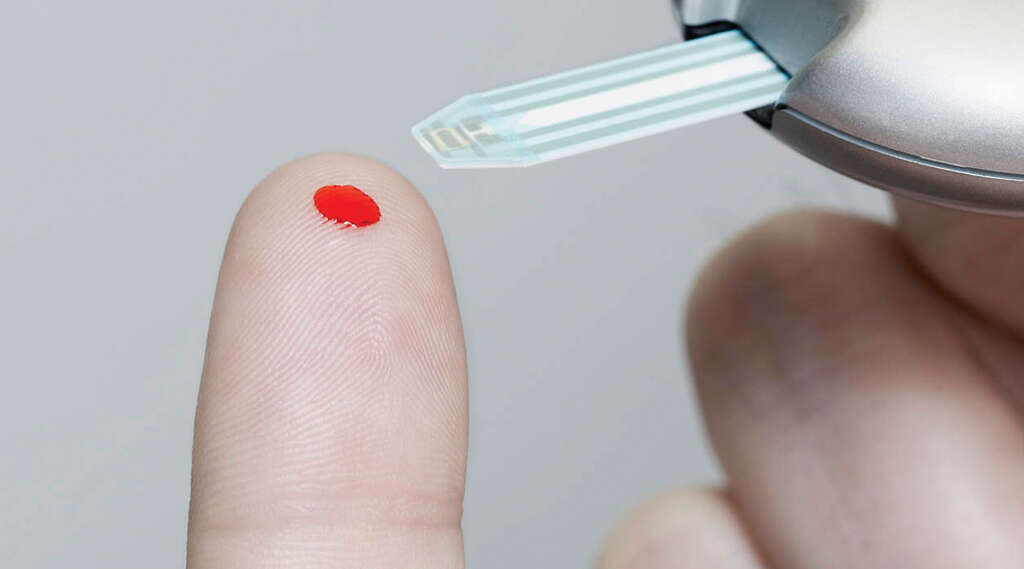
Symptom #6: Acne
Acne that persists beyond a woman’s teenage years through mid-twenties may be a symptom of PCOS. The problem is caused by the perennially high levels of testosterone. This causes the sebaceous glands to produce oil which causes blockage and acne.
In most cases, acne due to PCOS occurs on the cheeks, neck, jawline and the chin. The bumps are normally hard, with white or yellow heads. They occur under the skin and usually take longer to clear than ordinary acne. The acne bumps also flare up ahead of a menstrual period. For this reason, if you have this type of acne in addition to one or two PCOS symptoms, consult a doctor.
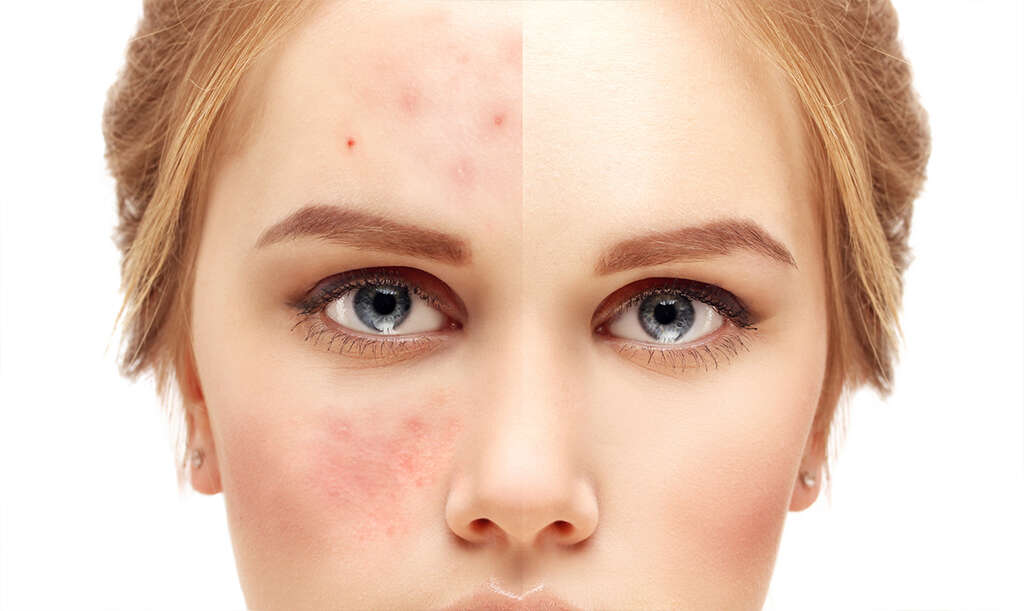
Symptom #7: Unexplained Weight Gain
Weight gain occurs in many women with PCOS and in most cases affects the upper body including the neck, shoulders and arms. This symptom is a result of high insulin levels in the blood. The weight gain occurs as a result of insulin resistance and lower basal metabolic rate.
It is difficult to lose the weight gain associated with PCOS because the body is unable to process food properly. Besides, most dietary approaches to the problem of excess weight do not work in person’s with PCOS, which is rooted in hormonal imbalance. However, your doctor or nutritionist may help devise a diet that helps stabilize your hormones.
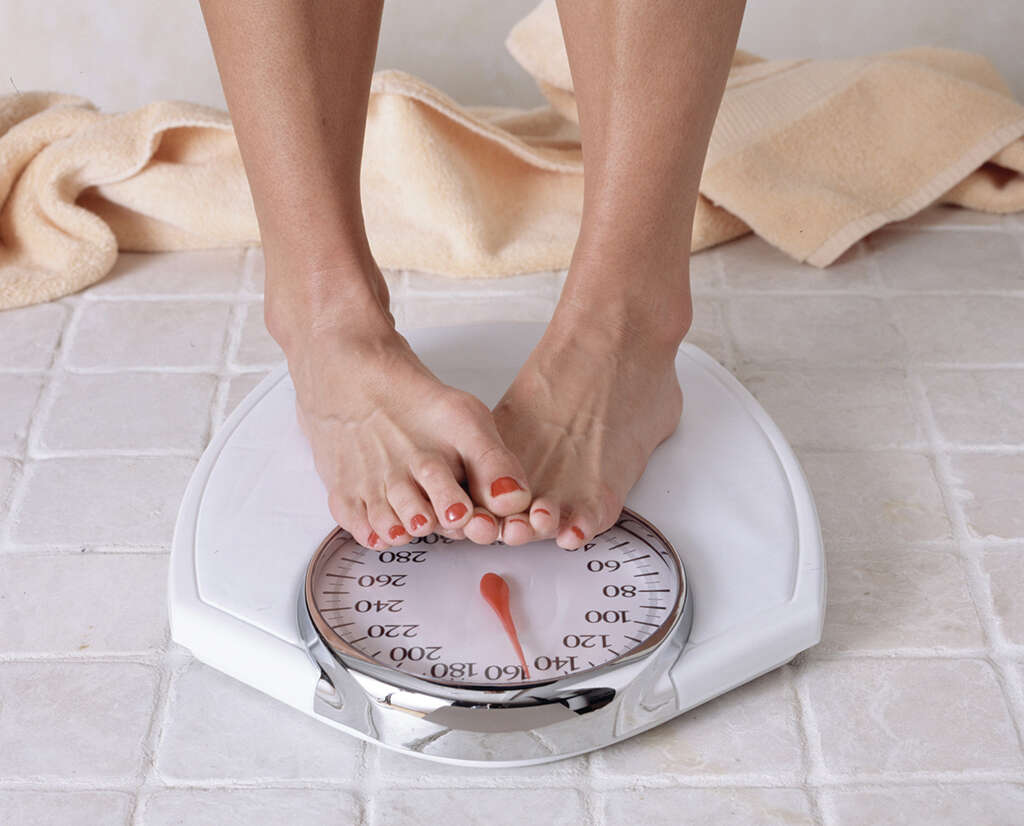
Symptom #8: Fatigue
While it can have many different causes, a woman who is regularly fatigued may have PCOS. This type of fatigue may simply be an afternoon sluggishness. It may also be so severe that you feel sleepy and are unable to carry out normal physical activities. The fatigue usually worsens in the afternoon and may include tiredness, sleepiness, sweating and shivering.
Fatigue and tiredness in a woman with PCOS is caused by the body’s insulin resistance. This means that the body is inefficient in using insulin to get glucose into cells where it is supposed to be broken down to produce energy. The result of inadequate energy production is constant fatigue. For this reason, a woman who experiences severe fatigue especially in the afternoon should consult a doctor for assessment.

Symptom #9: Infertility
The inability to get pregnant after having consistent sexual encounters without a proper contraceptive mechanism in place is defined as infertility. This is a normal finding in patients suffering from PCOS.
Due to the hormonal imbalance, patients tend to have anovulatory cycles, meaning that ovulation does not occur. If you are having difficulties conceiving, you should seek medical attention to assess the situation.

Symptom #10: Virilizing Signs
Due to increased androgens in the blood, patients suffering from PCOS will develop many virilizing signs. Patients may develop abnormal hair growth in areas that are not usually common for women.
Patients may also have a deepening of their voice and/or a large-size clitoris.
